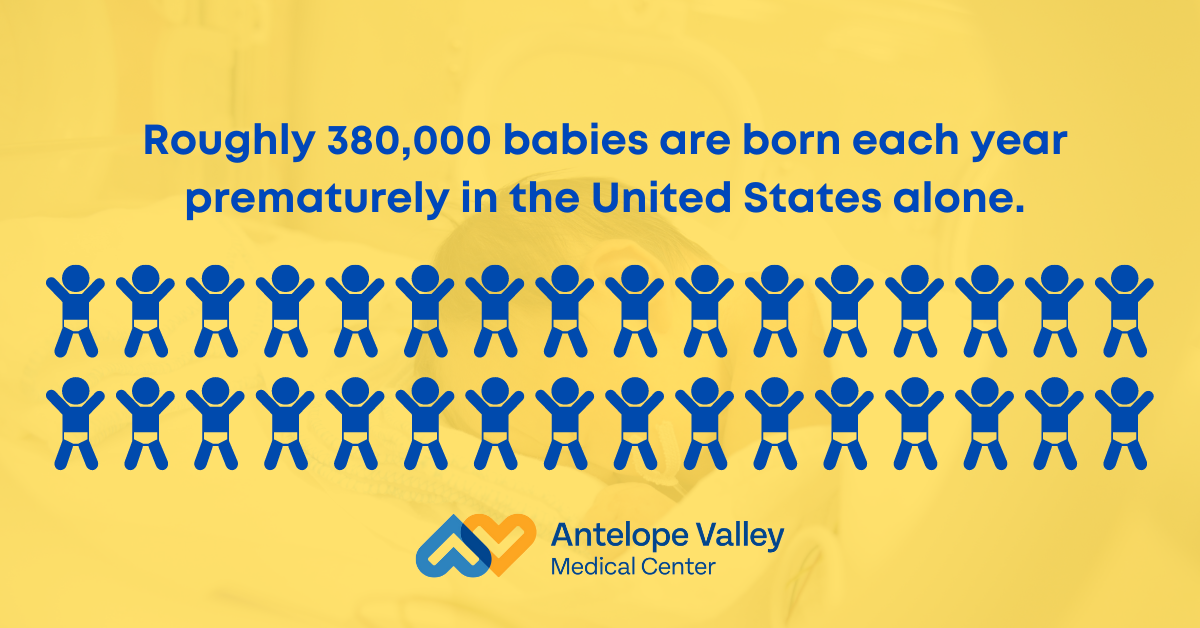Why Do Babies Stay in the NICU?
- Posted On:
- Written By: Antelope Valley Medical Center
.png)
Common Reasons for NICU Admittance
After your new bundle of joy arrives, you may experience a whirlwind of emotions — especially if you’re told that your baby needs additional care. It's not uncommon for parents to have their newborn baby admitted to the Neonatal Intensive Care Unit (NICU).
At Antelope Valley Medical Center, our neonatal team is dedicated to providing the best care for you and your baby, as well as offering the most information to prepare you for this new journey in life. Here are some of the top reasons babies may be admitted to the NICU.
Prematurity
Doctors consider babies premature if they are born before 37 weeks of gestation. Roughly 380,000 babies are born each year prematurely in the United States alone.

Premature babies often have difficulty breathing and keeping their body temperature stable. They may also be at risk for infections, bleeding in the brain, and other health problems. The NICU team can offer additional support and monitor your baby's health after birth to ensure they progress properly.
Low Blood Sugar
Some babies are admitted to the NICU due to hypoglycemia or low blood sugar. This can happen when a baby doesn't get enough glucose from their mother during pregnancy or if they lose too much blood during delivery. Hypoglycemia can cause a baby to be irritable, have trouble feeding, and even lead to seizures. For this reason, constant supervision in the NICU is beneficial.
Jaundice
Babies may also be admitted to the NICU for jaundice, or yellowing of the skin and eyes. This happens when there is an excess of bilirubin in the blood. Bilirubin is a yellow pigment produced when red blood cells break down. Jaundice can occur for a variety of reasons, including prematurity, infection, or liver problems.
Respiratory Concerns
Finally, babies may be admitted to the NICU for respiratory distress syndrome (RDS). This is a condition that occurs when the lungs cannot produce enough surfactant. Surfactant is a substance that helps keep the air sacs in the lungs from collapsing. RDS can be caused by a variety of factors, including prematurity, infection, and lung injury.
Antelope Valley NICU Care
If your baby is admitted to the NICU, don't hesitate to ask the doctors and nurses any questions you may have. They will be able to help you understand why your baby is there and what you can do to help them get better.
Antelope Valley Medical Center offers the area’s only Neonatal Intensive Care Unit (NICU) and Pediatric departments. For over 37 years, our NICU has created thousands of positive outcomes for babies that required immediate care after birth. For more information, please visit our website.


.jpg)
